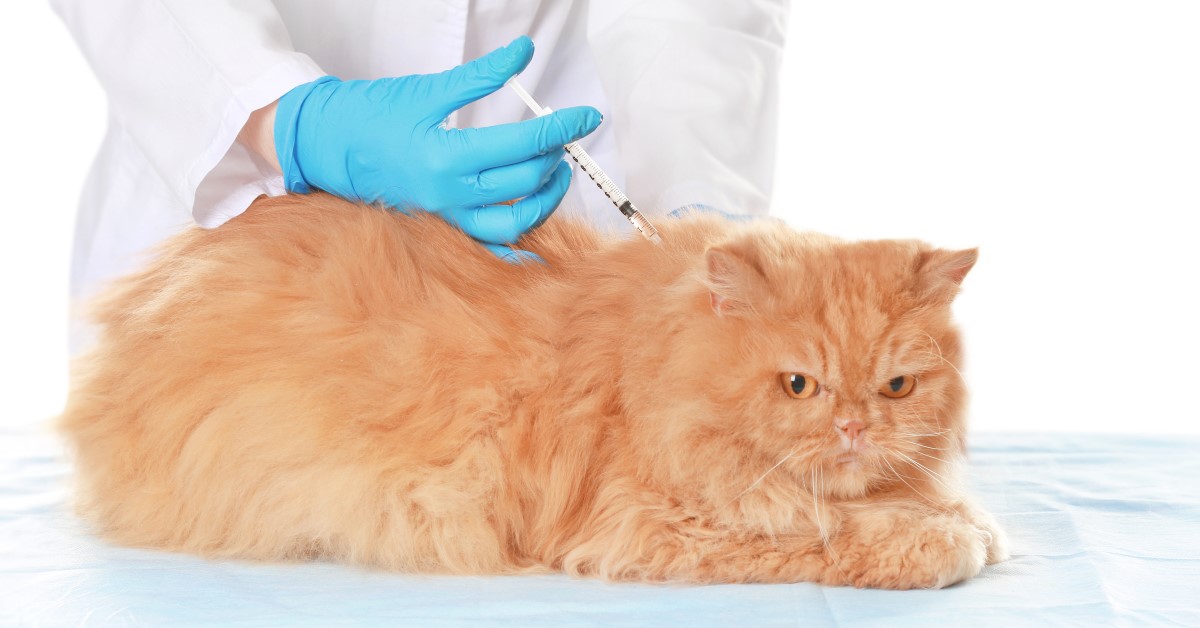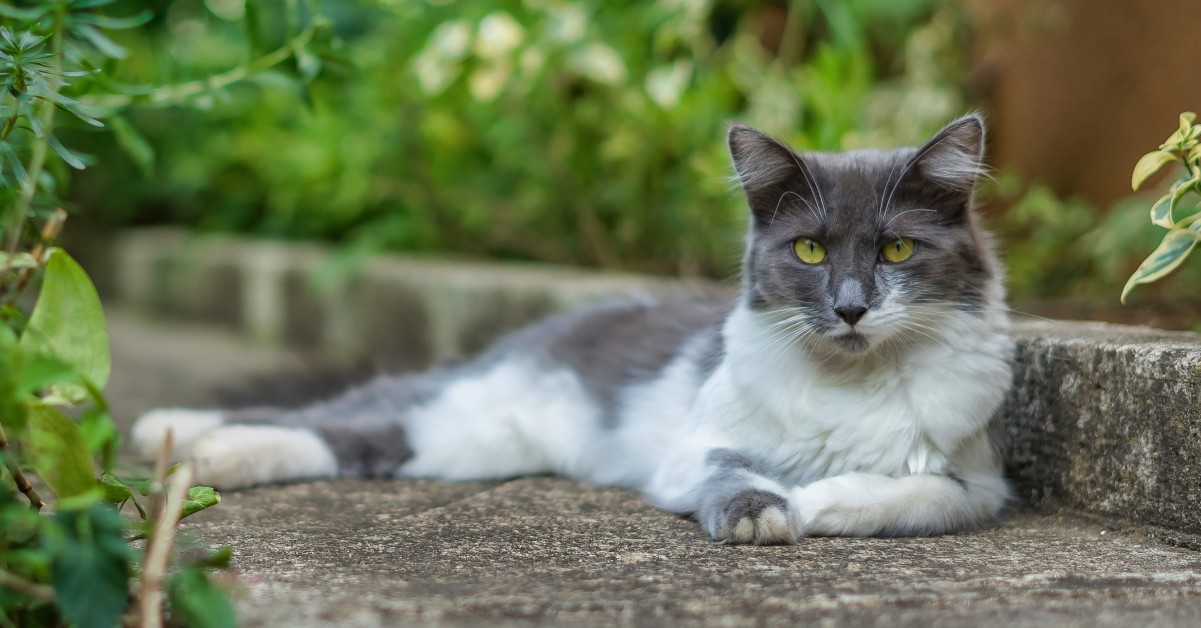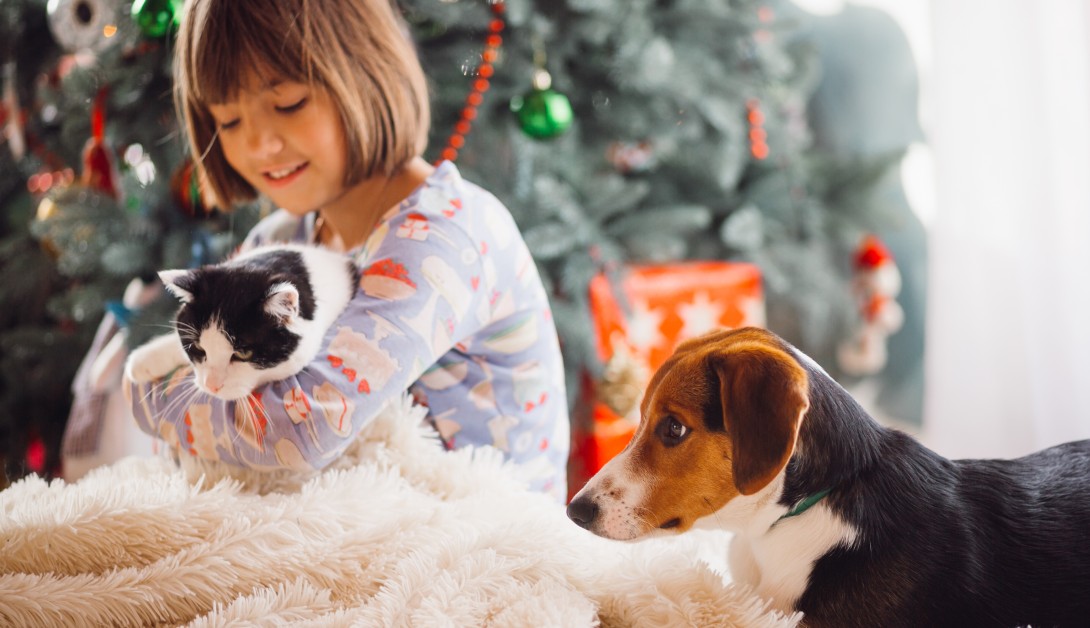Cat Vaccination Schedule
Vaccinations help protect your kitten or cat from contracting preventable diseases, such as rabies and feline herpesvirus type I.

Despite what storybooks portray, cats don’t actually have nine lives. Therefore, it’s the responsibility of pet owners to keep their cats safe from harmful viruses and bacteria that could cause your furry friend to get sick. While no vaccine is 100 percent effective, the right vaccinations delivered at the appropriate age can help your pet resist dangerous illnesses and recover much more quickly if they do become infected.
A vaccine is typically administered by an injection under the skin; however, it can also be given as drops in the nose or eyes. Vaccinations may contain live organisms that have been modified to provoke a positive immune response or killed organisms that are generally combined with other agents. Recombinant vaccines are a newer type of vaccination where components of one organism are incorporated into another organism.
Kitten and cat vaccinations are dependent on a variety of factors, such as the cat’s age, preexisting medical conditions, and living situations (e.g. indoor or outdoor cat). Here is a look at the recommended cat vaccination schedule:
6 to 8 Weeks Old
Your kitten should have its first visit to the vet between 6 and 8 weeks of age. During this initial visit, the vet will perform a comprehensive exam of the cat’s eyes, nose, mouth, body, and other structures. The vet may also perform a blood test to check for feline leukemia, as well as a fecal exam to identify possible parasites. Your vet may also recommend the following core and non-core vaccinations:
- FVRCP (feline viral rhinotracheitis, calicivirus, and panleukopenia)
- Optional: FeLV (feline leukemia virus)
10 to 12 Weeks Old
The second visit to the vet should occur between 10 and 12 weeks of age. At this visit, your vet may perform an examination and check for external parasites. While some pet owners believe that indoor cats do not require vaccinations, the reality is that all cats regardless of lifestyle should be vaccinated as a preventative measure. When it comes to your cat’s health, it’s best to err on the side of caution. The following vaccines are recommended at this age:
- FVRCP
- Optional: FeLV
14 to 16 Weeks Old
Between 14 and 16 weeks old, your vet may schedule a third appointment to check your cat’s growth and ensure that no health problems are developing. Your cat will also need additional vaccinations. It is important to remember that kittens are not fully vaccinated until they have received all of their shots at around 12 to 16 weeks of age. Vaccines at this age include:
- FVRCP
- Rabies
- Optional: FeLV
1- and 3-Year Boosters
Adult cats should receive booster shots on an annual basis to help them maintain good health. Depending on state laws, cats may be required to have rabies vaccinations on a 1-year or 3-year basis.
Bordetella can also be administered at any time and as early as eight weeks old. This vaccine is administered as a squirt in the nose and is recommended to cats who will be boarded or put in other social situations.
Every 3 years, cats should receive another round of FVRCP vaccines to protect against feline rhinotracheitis virus, feline calicivirus, and feline panleukopenia. These diseases are highly infectious and especially dangerous to young cats.
Important Cat Vaccinations
Not all cats require the same vaccinations; therefore, it’s important to consult with your vet about what vaccines your particular cat needs to stay healthy. The following are some of the most important vaccinations for cats:
FVRCP
Commonly referred to as the “distemper” shot, FVRCP is a combination of vaccines that protect against three serious diseases, rhinotracheitis, calicivirus, and panleukopenia, that could make your cat seriously ill or even die. Cats can contract these diseases at any age which is why kittens need to receive their first FVRCP vaccine by 6 to 8 weeks of age.
Rabies
The rabies virus can affect any mammal, including cats. Rabies vaccinations are required for cats in most states. Rabies is transmitted through the saliva of an infected animal, meaning just one bite from infected wildlife could cause the infection to transmit to your pet. Once symptoms set in, the disease is nearly always fatal in animals.
FeLV
Feline leukemia virus is one of the leading causes of death in cats. The virus commonly causes lymphoma or anemia, and can severely suppress the immune system, making the cat predisposed to deadly infections. Cats who are at a high risk of acquiring this virus, such as cats that go outdoors or live in shelters, should receive the FeLV vaccine.
Bordetella
The Bordetella vaccine is given to cats to prevent the highly infectious Bordetella bronchiseptica respiratory disease. Otherwise known as “kennel cough,” this bacterial illness can cause a wide range of respiratory symptoms. If not promptly treated, it can lead to more serious conditions, such as pneumonia. The vaccine exposes your pet to a nonpathogenic version of the bacteria. Your pet’s immune system then recognizes the virus and fights it off.
Getting Your Cat Vaccinated
Vaccinations are designed to stimulate the body’s immune system to generate disease-fighting antibodies that help protect against harmful viruses and bacteria. When kittens are born, the mother cat passes on some immunity to them through colostrum in their milk. However, this protection is only temporary. The best way to keep your kitten or adult cat safe and lead a long, happy life Is to provide protection through vaccinations.
Ready to start saving money on pet wellness care?
Then take a look at Mint Wellness, the pet wellness plan that provides fast reimbursement on routine pet care. Save on vaccinations, wellness exams, preventatives, dental, and more!
Learn More


